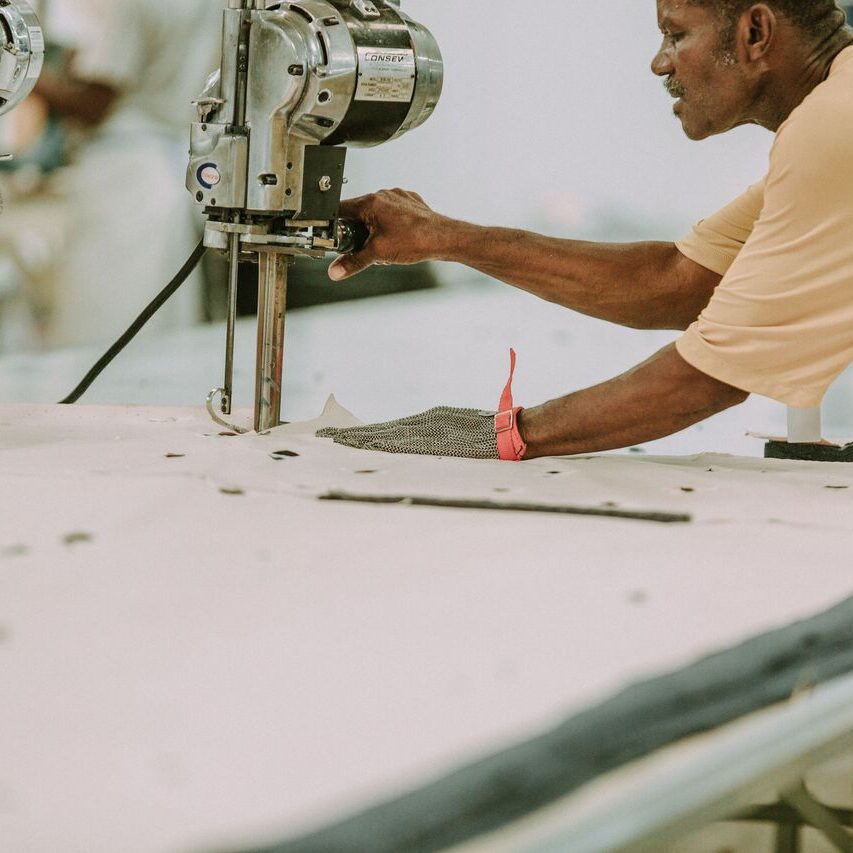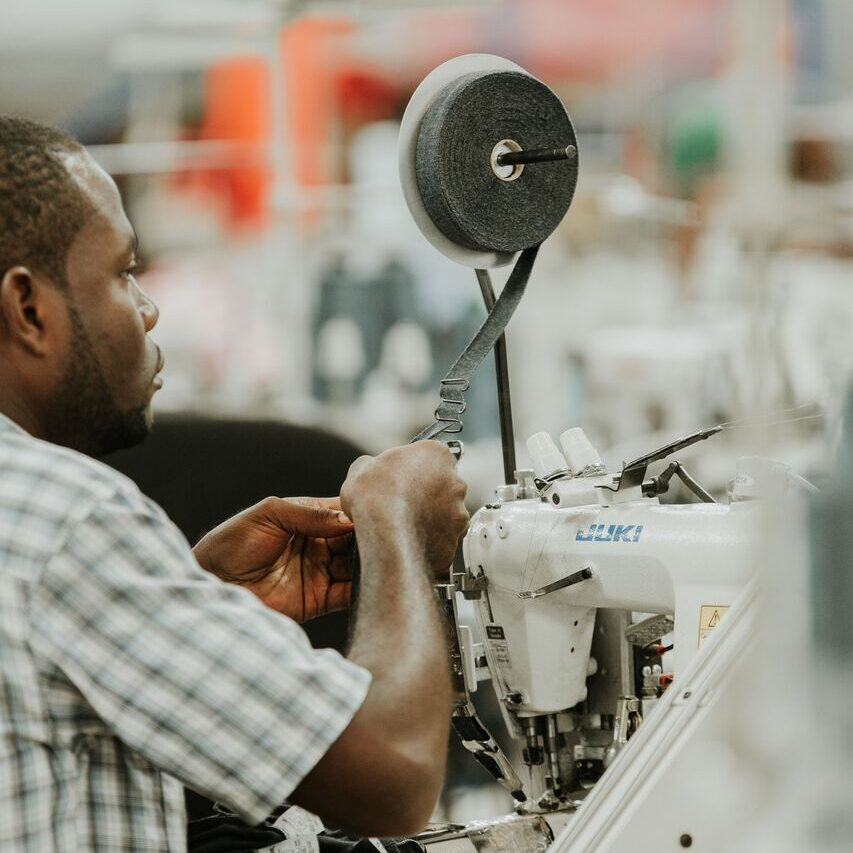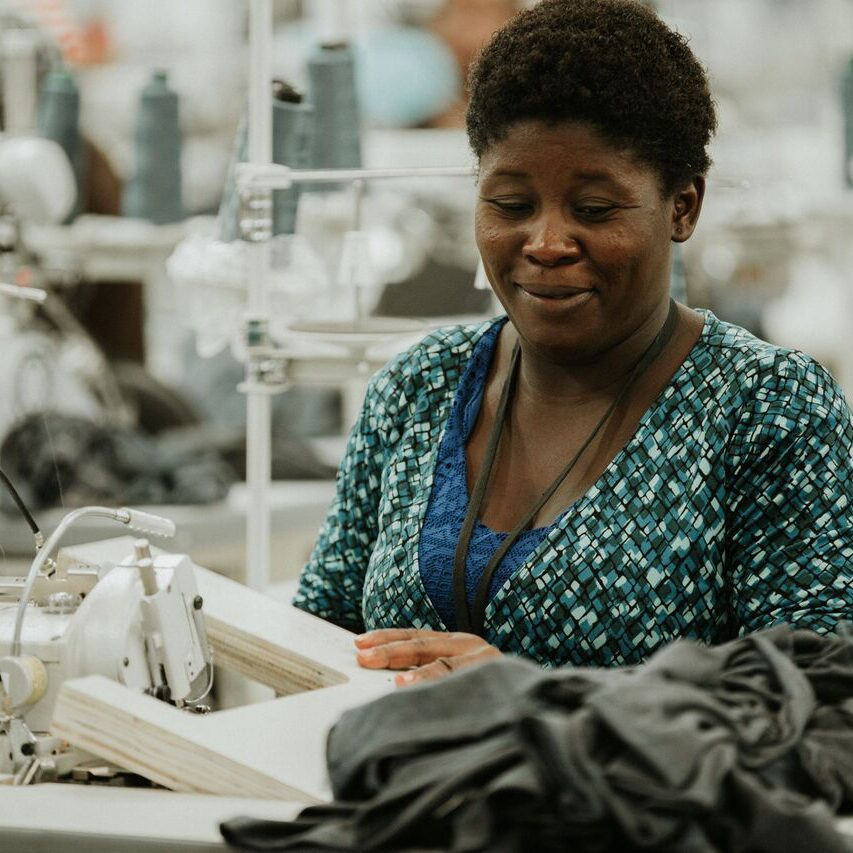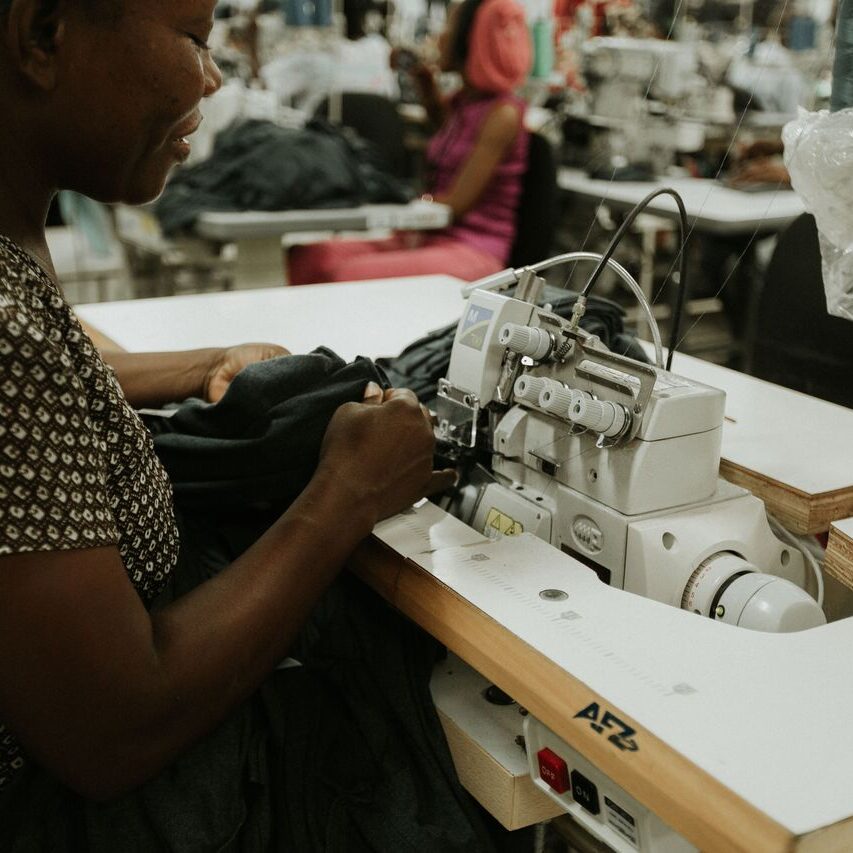Our Why
Why we do what we do

make it better.
Two billion t-shirts are made every year, using fibers like industrial cotton, which is often grown in regions with minimal regulations—directly exposing workers and the environment to deadly pesticides and herbicides that are outlawed in the U.S.
These materials are then transported across the globe using bunker fuel, a heavy oil residue so toxic most countries won’t let ships using it within 200 miles of shore.
They are then spun into yarn, knitted into fabric, and sewn into garments by workers, often in sweatshop conditions, for a wage that does not allow them to meet even their most basic needs. In countries like Haiti this translates to an increase in orphans, many of whom’s parents were forced to give them up because they couldn’t afford to care for them.
At Allmade, we’ve decided it’s time to make it better.

Made from sustainable natural fibers & recycled bottles.
Our tri-blend shirts are constructed of organic, U.S. cotton; polyester produced from recycled plastic bottles (3 bottles per tri-blend shirt that never make it to a landfill); and modal, a fiber from sustainably-farmed beech trees.
Our cotton is grown in Texas, and spun, knitted, dyed and finished in the Carolinas, funding American jobs and reducing shipping pollutioin.
Made in Haiti, for a living wage that keeps families together.
We’ve partnered with the Global Orphan Project to create dignified living-wage jobs at their GOEX production facility—paying Haitian makers 5x the typical wage to cut and sew Allmade shirts. Many of these workers will be graduates from a new transition program designed to enable orphans who are aging out of the system for success, giving them valuable life and job skills.




Made to give screen printers, and consumers, a better choice for a better shirt.
We’re putting our collective expertise and purchasing power to work, educating the market, while offering screen printers and consumers a better option. Our high-quality blank t-shirts are produced at a competitive price, making it easier to make a socially and environmentally-kind choice.

The GO Project is a non-profit global organization that contributes 100% of their donations to orphan prevention and care programs in impoverished regions.
Children in countries like Haiti, where the average worker earns a mere $3/day to support a family of 8, are at a high-risk of becoming economic orphans. The typical orphan in Haiti is not without parents, but rather without parents who can afford to care for their most basic needs—food, shelter, clothing, education, and basic healthcare.
The GO Project is fighting this cycle, with:
Orphan Prevention Programs
The GO Project’s Haitian facility, GOEX, where Allmade shirts are produced, is among a number of businesses and ventures they’ve developed to create dignified work that keeps families together. 100% of GOEX’s profits are dedicated to orphan care.
Orphan Care Programs
The GO Project provides orphan care in 20 countries around the world, including Haiti, working with local churches to ensure their most important needs are met, and they are enabled with tools for success within their own communities.
Transition Programs
The GO Project recently launched the GO Transition Academy to give orphans between 18-24 (who have aged out of the system) valuable life and vocational skills for a successful transition into adulthood. Many of the makers producing Allmade shirts will be participants of this new, two-year program.


